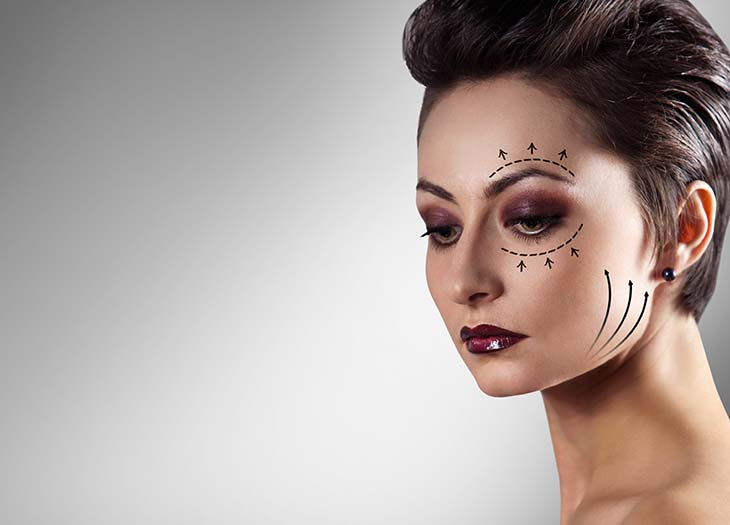Facial Liposuction

What Facial Liposuction Can and Can’t Do for You
Have you ever hated the way parts of your face puff out or seem to sag? Have you ever wished for slimmer features? If you answered yes to these questions, then facial liposuction might be the right choice for you.
Before you book a consultation with your doctor, here are a few things that you need to know about what facial liposuction can and can’t do for you.
What is Facial Liposuction?
Facial liposuction works to remove fatty deposits from specific areas of the face (chin, neck, jowls). The most common type of liposuction used to remove fat deposits from the face is tumescent liposuction.
Tumescent liposuction is performed by injecting a solution (mixture of salt solution, lidocaine, and epinephrine), that is equal to three times the amount of fat being removed, into the layer of fat. The solution works to fatten cells, which makes them easier to isolate and remove. The solution also shrinks blood vessels, which can help ease your discomfort during the procedure without the risks associated with general anesthesia.
Liposuction is considered one of the most desirable procedures used to remove fatty deposits from the face because it can produce better results while minimizing scarring compared to other types of facial enhancement procedures. Facial liposuction can also be performed in less than an hour.
Before Facial Liposuction Care
Although liposuction is a fairly common procedure that works to eliminate deposits of fat that aren’t effected by diet or exercise, it is still important to remember that liposuction is a type of surgery and should be treated as such.
Some of the pre-surgery steps that you’ll need to take are:
Two weeks before receiving facial liposuction:
- Stop taking all forms of blood thinners, such as aspirin
- Stop taking medications and vitamins that affect blood clotting
- Stop smoking
The day of receiving facial liposuction:
- Don’t eat or drink for at least six hours before your surgery
After Facial Liposuction Care
Recovery from facial liposuction can take anywhere from a few days to a few months, depending on the size of the treated area. During the first few weeks after your surgery, your doctor will ask you to wear a compression garment which can help reduce swelling.
You should be able to return to work within five days, if not sooner. However, if the incisions for facial liposuction were made in your mouth, then your diet may be restricted. You will also be asked to take showers instead of baths for about a week after having liposuction. The anesthetic solution from tumescent liposuction surgery will drain from the incisions for the first several days after surgery. This is not something to worry about as it actually helps to speed up the recovery process.
During the first several months after your surgery, the swelling from the procedure will go down and you will be able to see the final results of your treatment. Skin around the treated area may also appear loose, but it will tighten over time, usually within six months.
Your doctor may also suggest gentle walking routine within three to four days after surgery, as mild exercise helps protect against the formation of blood clots and other post-surgical complications. You should be able to increase your level of activity within two weeks, but should avoid vigorous exercise for at least one full month.
Risks of Facial Liposuction
Like any other type of surgery, facial liposuction has some side effects. However, the risks of facial liposuction tend to be lower than the risks of having liposuction surgery on your body. Your doctor may prescribe antibiotics to help lower your risk of infection after the surgery, and it is important to make sure that you take the full course of those medications to make sure that you are fully protected.
Some of the risks from facial liposuction include:
- Infection
- Bleeding
- Swelling
- Nerve damage
- Scarring
- Anesthesia risks
- Hematoma (pooling of blood under the skin that may clot)
- Seroma (collection of fluid under the skin)
Consult with Your Doctor
Before deciding whether or not facial liposuction is the best treatment plan for you, you should book a consultation with Dr. Binder. With years of experience performing facial liposuction, he has the knowledge and expertise to help you make the best decision about getting facial liposuction surgery.
